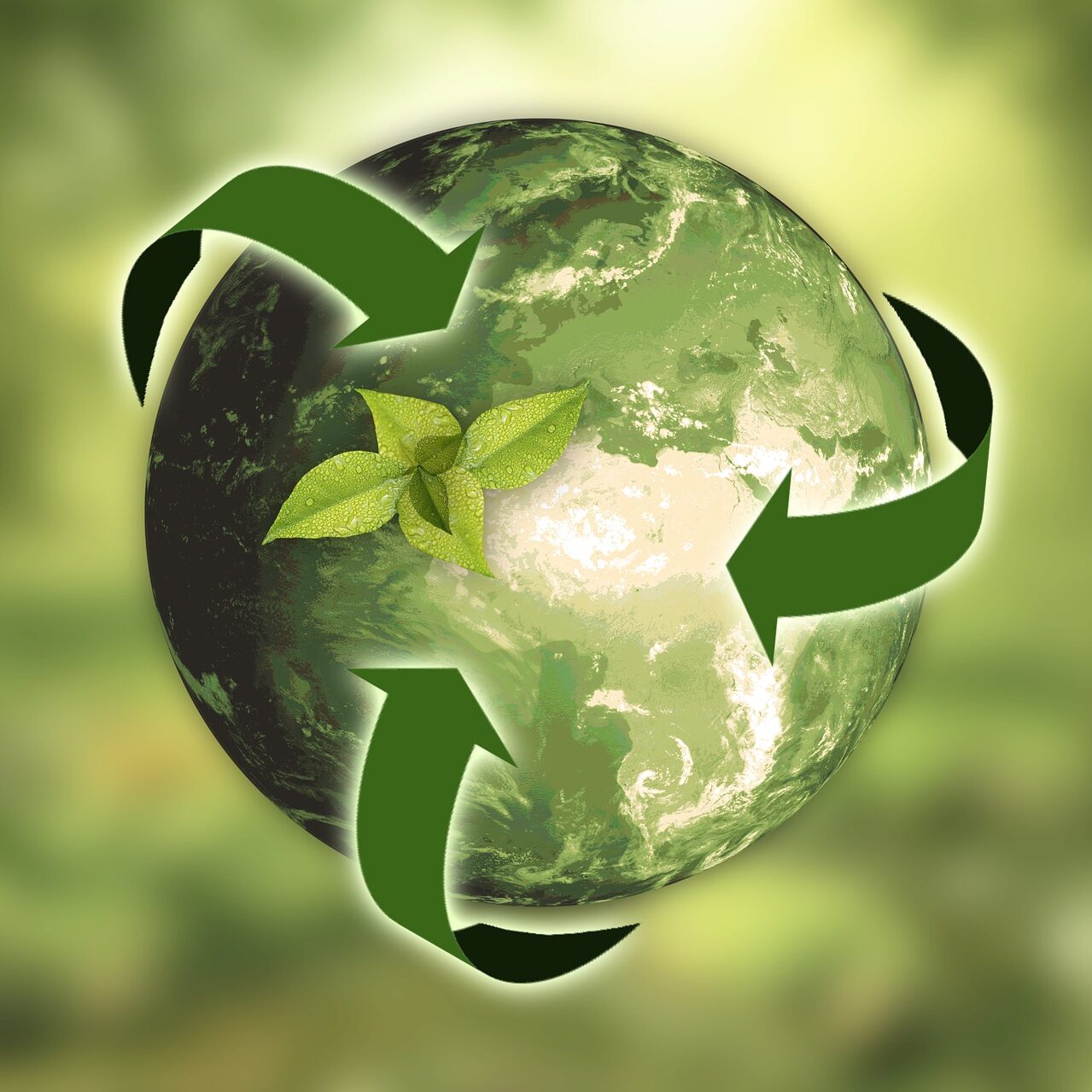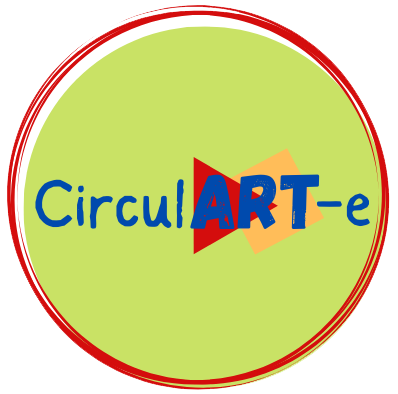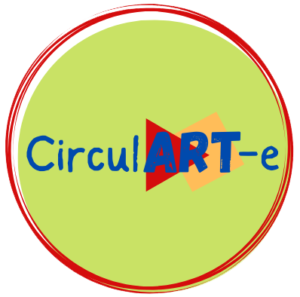PROJECT RESULT 2
Explore the Digital Guide!
You want to provide young people with more information on circularity? You want more engaging and motivating activities on how to engage youth in the topic of circular lifestyles?
Then welcome to the CirculART-e toolkit! This toolkit provides you, as a youth worker, with activities, additional resources, and materials for you to easily find activities to use with your participants and young people.
With the toolkit you can easily motivate young people to learn about circularity, soft skills, as well as visual heritage and engage them in interactive and interesting exercises. Start your journey through the activities now!
Theoretical Framework
Learn more about the basics and the structure of the CirculART-e methodology.

Explore the toolkit!
Step by step through the toolkit
Step 1 – Choose your topic
Choose the topic you are most interested in below and click on activities to explore more. Each topic also features a short explanation what the topic is about.
Step 2 – Find your activity
Afterwards, we invite you to explore the activities. Each activity features a step-by-step description and more information on duration, number of participants, and more…
Step 3 – Explore the materials
You can choose whichever activity fits your needs and your learners best. Some activities also provide further information in the form of a tutorial video, printable handouts, as well as additional resources.
The activities
You can find the activities structured in three different topics. While we have separated them here to achieve an easy-to-navigate overview, many activities focus on a connection between the topics. For more information what skills and competences each activity addresses, please refer to the activity descriptions.
Visual identity and heritage
Visual identity and heritage entails the management and presentation of visual elements that reflect the essence and historical significance and context of a particular culture or individual. This involves designing logos, collages, imagery, and digital media that communicate the cultural identity and values, while preserving and celebrating its heritage. Skills and competences in cultural sensitivity, historical and cultural research, graphic design, branding, and creative communication are vital in this domain.
Soft skills
Soft skills are interpersonal attributes like leadership, organisation, and communication, crucial for effective interaction and collaboration in various contexts. They complement technical skills and are essential for personal and professional success, fostering positive work environments, innovation, and achieving organisational goals. Soft skills are increasingly valued for their role in building relationships, resolving conflicts, and adapting to change, highlighting their importance in today’s dynamic and interconnected world. Additionally, soft skills contribute to personal growth, enabling individuals to communicate effectively, collaborate harmoniously, and navigate diverse teams with confidence and adaptability.
Upcycling and circular lifestyle
Embracing upcycling and adopting a circular lifestyle holds significant importance in today’s world, where sustainability and environmental consciousness are paramount. Upcycling involves transforming old or discarded materials into new, useful items, reducing waste and minimising the consumption of new resources. This practice not only helps mitigate the environmental impact of waste but also encourages creativity, resourcefulness, and innovation. Skills such as creativity, craftsmanship, problem-solving, and a commitment to sustainability are crucial for successful upcycling and embracing a circular lifestyle. By embracing these practices, individuals contribute to a more sustainable future while promoting a culture of resourcefulness and responsible consumption.


